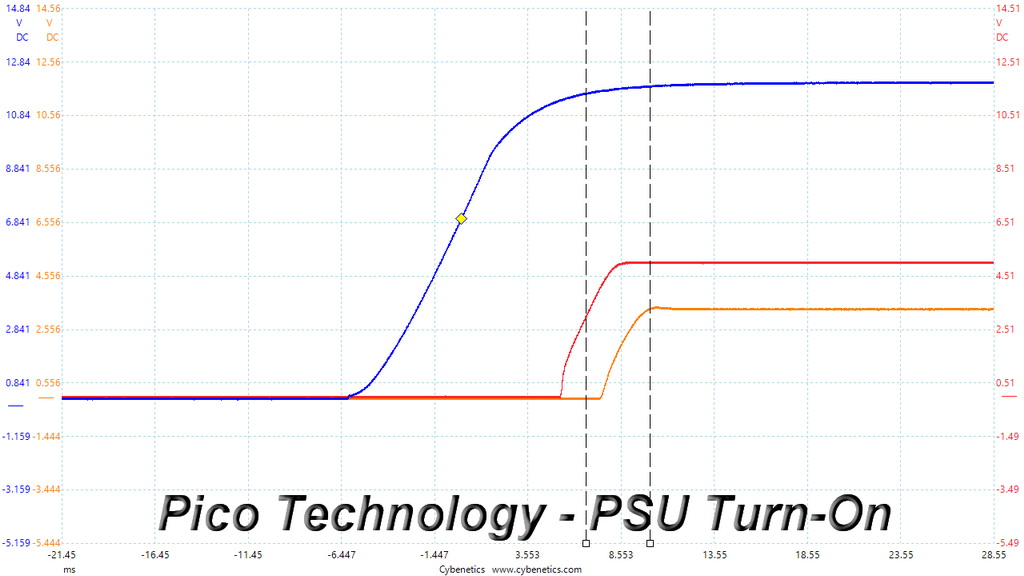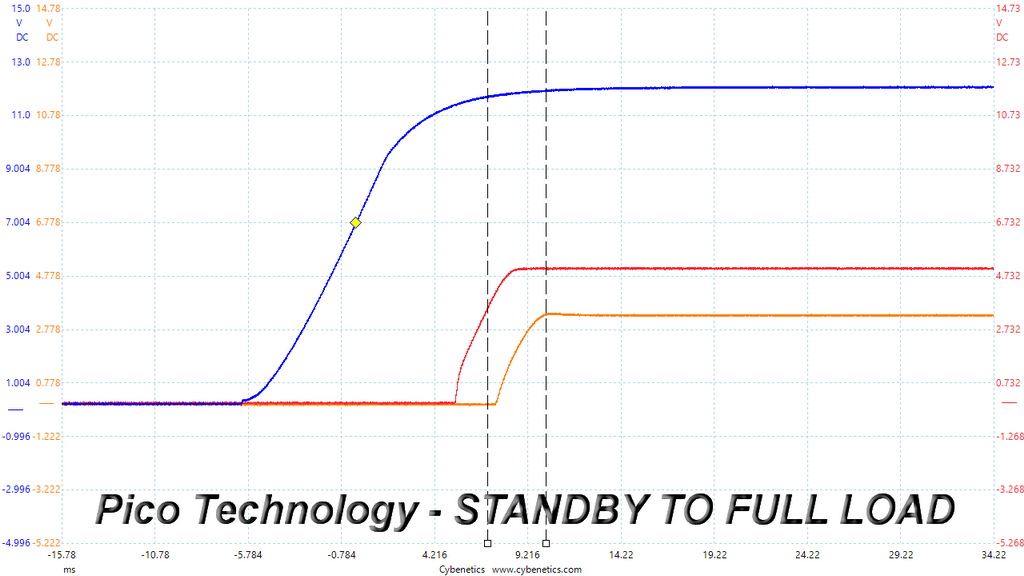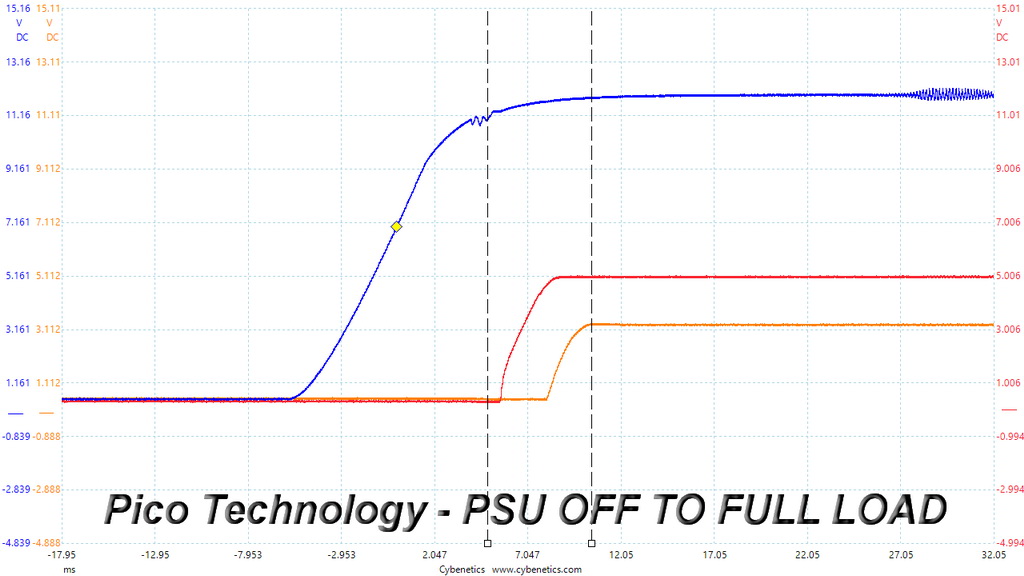Corsair SF450 Platinum SFX PSU Review: Best of the Best
Why you can trust Tom's Hardware
Protection Features and DC Power Sequencing
Protection Features
Check out our PSUs 101 article to learn more about PSU protection features. Our protection features evaluation methodology is described in detail here.
| Protection Features | |
| OCP | 12V: 50.6A (134.93%), 12.039V 5V: 26.1A (130.5%), 5.043V 3.3V: 27.7A (184.67%), 3.343V 5VSB: 3.4A (136%), 4.999V |
| OPP | 622.9W (138.42%) |
| OTP | ✓ (140°C @ Secondary side) |
| SCP | 12V: ✓ 5V: ✓ 3.3V: ✓ 5VSB: ✓ -12V: ✓ |
| PWR_OK | Accurate (but lower than 16ms) |
| NLO | ✓ |
| SIP | Surge: MOV Inrush: NTC thermistor & bypass relay |
The OCP triggering points on every rail except for the 3.3V one are properly configured. Because of the 3.3V rail's low nominal capacity, OCP's percentage is too high. Ripple stays in control though, as does load regulation.
OPP is set at around 138.5%, which allows the PSU to deliver more than 620W of load before shutting down. We usually ask for 130% above the nominal capacity, but because this is a low-capacity and well-built power supply, we don't have a problem with its higher OPP. It'll have no problem coping with the power spikes that many high-end graphics cards generate.
Short circuit protection is present on all rails, as expected, and the power-good signal is accurate. However, it doesn't exceed 16ms as the ATX spec demands.
DC Power Sequencing
According to Intel’s most recent Power Supply Design Guide (revision 1.4) the +12V and 5V voltages must be equal to or greater than the 3.3V rail’s output during power-up and normal operation.
For our first measurement, we turn the PSU off and switch it back on without load on any of its rails. In the second test, we set the PSU to standby mode, dial in a full load, and start the PSU. In the last test, with the PSU switched off, we dial in a full load before restoring power.



Since the 3.3V rail is lower than the other two rails in every case, we can say that everything went smoothly.
Get Tom's Hardware's best news and in-depth reviews, straight to your inbox.
MORE: Best Power Supplies
MORE: How We Test Power Supplies
MORE: All Power Supply Content
Current page: Protection Features and DC Power Sequencing
Prev Page Efficiency, Temperature and Noise Next Page Cross-Load Tests and Infrared Images
Aris Mpitziopoulos is a contributing editor at Tom's Hardware, covering PSUs.